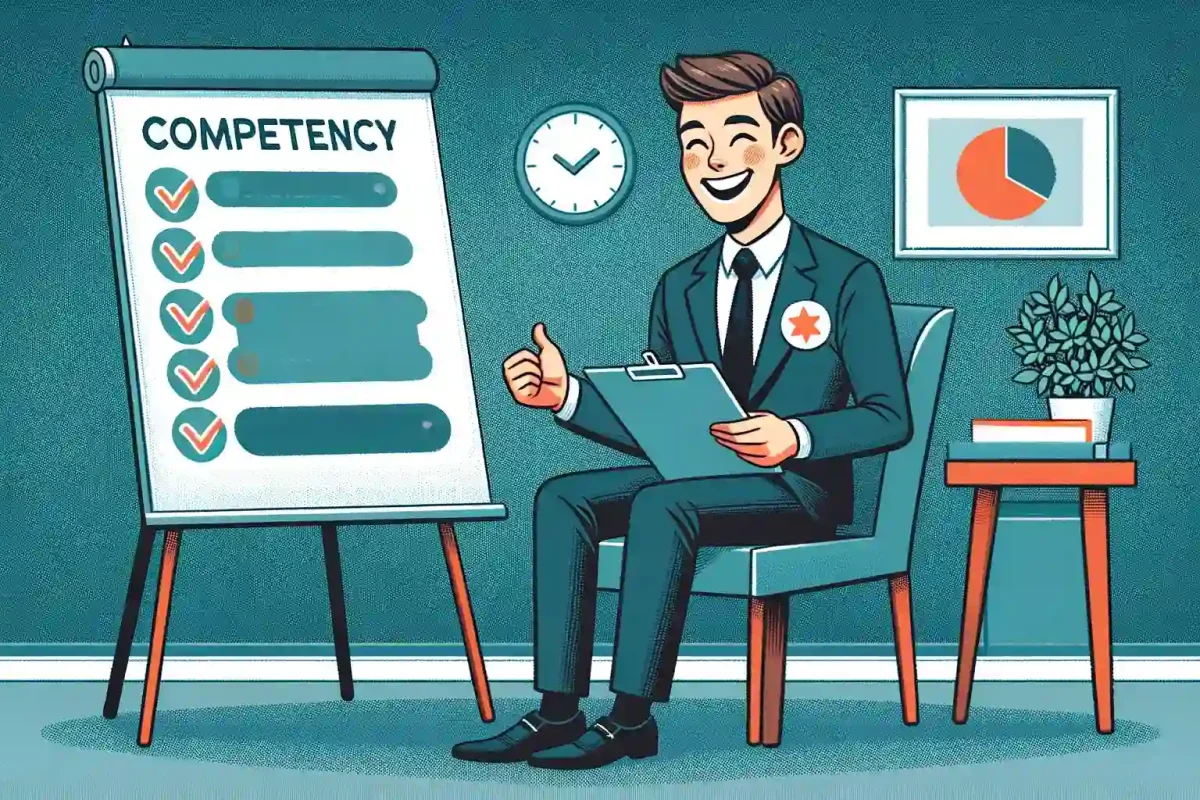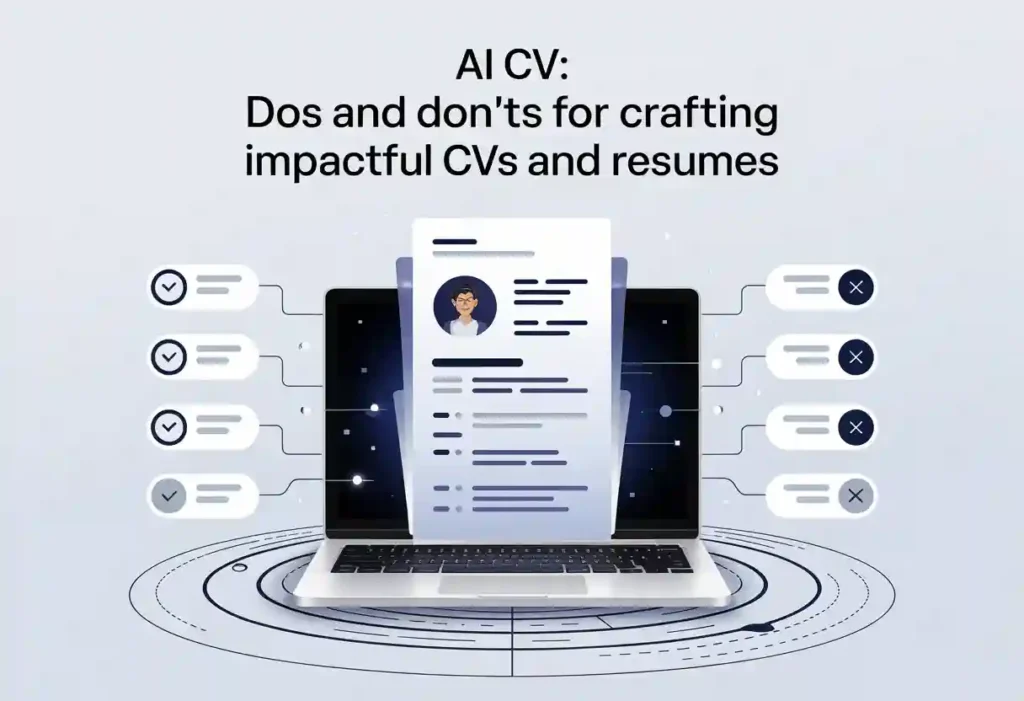Competency-Based Interview Questions
- Decide what information the interviewer needs you to provide
- Prepare by making a list of relevant strengths and weaknesses
- Consider why this particular set of qualifications would suit the position you’re applying for
- Provide concrete evidence using real-life experiences or university/work projects where possible
Thirdly, take some time to consider how each skill has helped you in your current position or situation.
Could it potentially benefit the company that’s interviewing you?
For example, explain a specific task, job, or project if they ask about a time when you gave creative input in your work.
Something like, “I designed our most successful marketing campaign.”
Remember not to be apologetic or defensive; this is an opportunity to show off all the great things about yourself!
Finally, and most importantly, don’t forget to speak positively about your achievements and not undersell yourself.
Like this post?
Sign up for our blog updates and never miss a post.
We’ll send you A FREE job interview eBook as a thank-you.
The hiring manager will want to know some specifics about you and your work history
First, prepare in advance by knowing the job details on offer ─ what skills are most important?
What challenges does the organisation face currently, or is it anticipating meeting down the road?
Secondly, take time during each interview to think about how you can demonstrate these key attributes using specific examples from prior experiences.
Recalling a previous challenge is sometimes tricky for candidates because they’ve done so much over their lifetime!
It might help if someone else knows something about you; for example, a mentor or team member.
Someone who could provide an example of when you rose to the occasion and broke through a problematic barrier to achieving something.
Dealing with the interview
A competency interview can be one of the most challenging parts of the interview process.
An interviewer for a retail job may ask employee interview questions about communication skills and teamwork.
In contrast, an upper management job interviewer may ask employees questions about leadership, independence, and creativity.
Here are six quick competency questions hiring managers often use to help you find the right job faster and succeed in your interview.
You should be aware of these, so you can prepare to answer them carefully in any interview.
Interviewers can ask a candidate many questions under this category.
I have some examples for you to consider.
We also have some suggestions for answers that can set you apart from other candidates in an interview.
How could you answer these six quick competency-based interview questions skillfully and confidently?
- Do you have the necessary skills to do the job?
- What problems did you solve in your last company?
- Tell me about your last job
- How do you feel about your career progress?
- Has your employer ever asked you to resign?
- What did you dislike about your last job?
Read on to find out!
1. Do you have the necessary skills to do the job?
If you feel you have any shortcomings or are unsure what competencies they’re looking for, don’t try to hide this uncertainty.
Clear the air by making it evident that you learn quickly.
As you answer the question, reassure the employer that you’ll be able to acquire the competencies that you currently lack.
Suggested Answer
I have many skills that I can bring to your organisation and a genuine willingness to learn.
Regarding the specific skills you’ve described, I wouldn’t want to claim that I have them all at this stage.
I can’t anticipate everything that you’ll throw at me.
But I am confident I can handle most of your tasks.
And produce the results that you are looking for.
2. What problems did you solve in your last company?
If you identified problems in your previous organization, describe the situation and what you did to help put them right.
Be as specific as possible and try to highlight relevant competencies.
Suggested Answer
I identified a problem in the way we were managing our sales.
I noticed that we missed out on many sales in a particular department.
After I brought this to the attention of my manager, we were able to formulate a plan.
I rectified the problem, and there was a significant increase in sales.
3. Tell me about your last job
You don’t want to go on for too long when answering this interview question.
Recall two or three relevant experiences from your past role and demonstrate how they enhance your competency for the position you’re applying for.
Suggested Answer
My last job in the editorial department was exciting and challenging.
I started rearranging archives for some files because we were moving office.
As time passed, I got promoted from PA to CEO.
I learned a lot of new skills, particularly in communication and liaising between different teams and departments.
This was one of the critical competencies of the role.
4. How do you feel about your career progress?
When answering this question, you should express that you have a career plan and have not immediately shifted from job to job.
But more importantly, this next role is part of that long-term plan.
Suggested Answer
Yes, it’s been going well. I’ve focused on acquiring skills to prepare myself for my desired role.
I’ve worked hard to get the right companies and roles.
And now, I think this would be a reasonable and logical next step for me.
5. Has your employer ever asked you to resign?
If you’ve been asked to resign, explain what you’ve learned from the experience.
But if you haven’t, talk about your experiences with your bosses.
Suggested Answer
I’ve never been in that position.
I’ve always had a positive relationship with my team members and employers, and leaving has always been challenging.
Even if disagreements arose in the workplace, my communication skills would be sufficient to resolve the situation.
Indeed, before it came to a resignation.
6. What did you dislike about your last job?
The key here is to avoid the interviewer dragging you into opening a can of worms.
You don’t want to say that you disliked doing one of the things a potential employer will require of you.
Suggested Answer
I wouldn’t say there was anything I disliked in general.
They were a great organisation, and I loved the people.
I just felt I needed more.
The range of opportunities in that role didn’t stretch me, prompting me to look for other options.
How to use the STAR approach to answer any competency-based interview question.
This is one of the best techniques!
The acronym STAR stands for Situation, Task, Action, and Result.
To answer a question using the STAR approach, you need to answer the following four questions:
- What did you do in the situation?
Why was the situation critical to your success? Did you make any decisions, and what were they? What actions did you take, specifically, to get the result? How did that compare with other options available at the time or since?
- What task did you undertake?
How did you know the task was complete and accomplished with high quality? Did you need to overcome any obstacles to achieve this (i.e., lack of resources, other people at work)?
- What actions were taken, and what was the result? For example, did you make any decisions or changes at work, and what were they? What skills did you acquire during that time?
How would your performance on this task compare to other people’s in terms of effort, quality, or creativity (i.e., was it better than average)? What obstacles or challenges did you face?
- What were the results you achieved? What was the outcome? For example, what did you learn, or how were you better after you had completed the task?
What were the specific, measurable results? For example, did you and your team save the company money? Or improve the company’s revenue? What was the final achievement or goal reached due to your work?
Practice using the STAR technique to structure your answers for some example questions.
Bonus Question
Discussing your successes is easy, but some competency interviews will explore your failures.
So, how do you respond when you admit you didn’t do well at something?
Here’s an example:
Tell me about an instance when you failed an activity or assignment at work.
How did it feel? What were some things that contributed to the failure?
How did the experience inform or shape your future performance at work?
Answer
When I was working at ABC Ltd, I managed a project for the company.
The goal was to improve efficiency and reduce costs by streamlining some data entry processes.
The project took longer than anticipated, which made me feel stressed.
I felt stressed because I needed to catch up on my other responsibilities.
Also, some obligations outside work were outside of this particular task.
I discovered that I needed to improve my time management skills and learn to delegate more effectively.
The project also taught me that I needed to set better expectations, which are only sometimes realistic.
Since then, doing so has helped me manage projects more successfully.
Dos
- Ensure you use the exact words in your resume that the HR manager used in the job posting. This will help to emphasise your qualifications/experience for the role.
- Get your resume noticed! Companies perform keyword searches when sorting resumes. Ensure you include all relevant keywords in your resume when securing a job interview.
- Adapt your resume for each position. It shows the head of recruitment that you know how competitive the labour market is, And that you understand how important it is to use all the tools at your disposal to get to the top. Tailoring shows drive, attention to detail, and commitment.
Don'ts
- Don't answer a competency-based question with “I can’t think of an example.” You may not have had much experience. However, you should be able to provide examples from your past work history, significant projects, or other areas of expertise.
- Don't try to oversell yourself or make up an answer to appear to have more experience than you do. This will only backfire when they ask for specifics, and it turns out that you can't back it up.
- Don't be afraid to discuss your shortcomings or mistakes in competency-based interviews.
- Do not forget to create your resume using our Free resume builder.
Closing Thoughts on Competency-Based Interviews
This is a common interview technique.
The sample interview answers here help you understand what a good response structure could be.
These types of questions ask about more than just your specialist technical knowledge.
They probe deeper into what you can achieve and allow you to tell the interviewer about how you handle specific situations.
Use them to think about how to tell your own ‘stories’.
Take time to prepare for the following interview if they ask competency-related questions.



